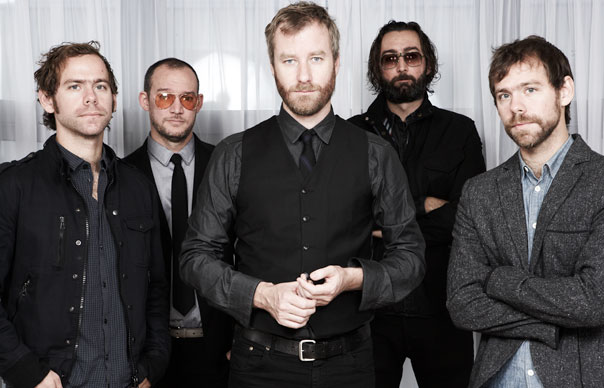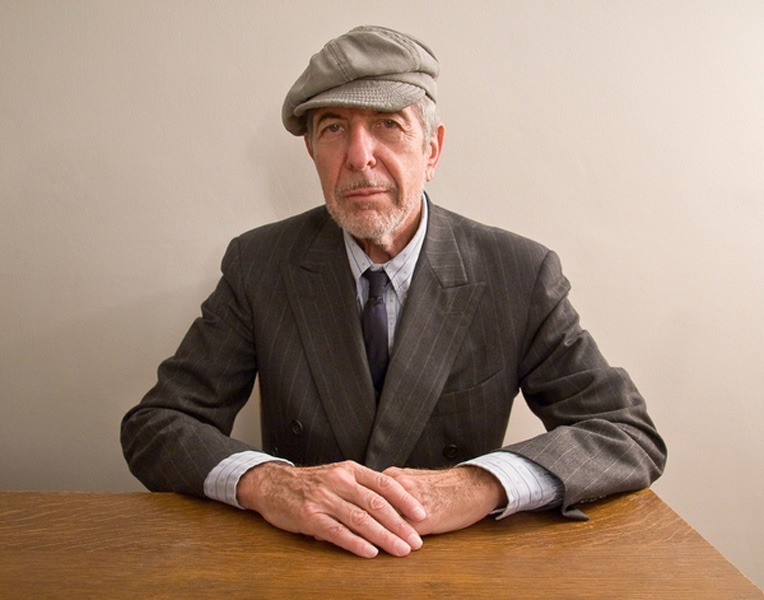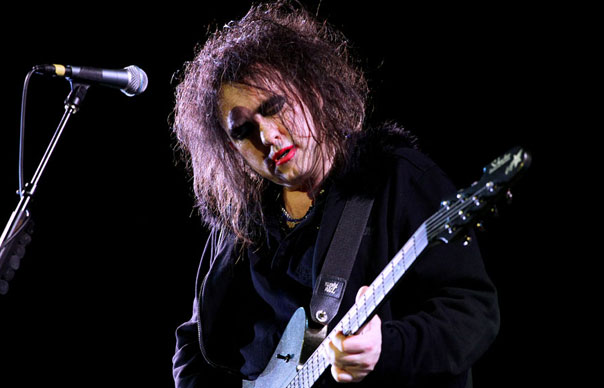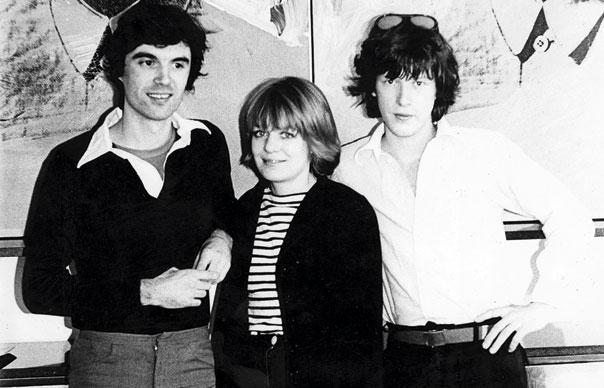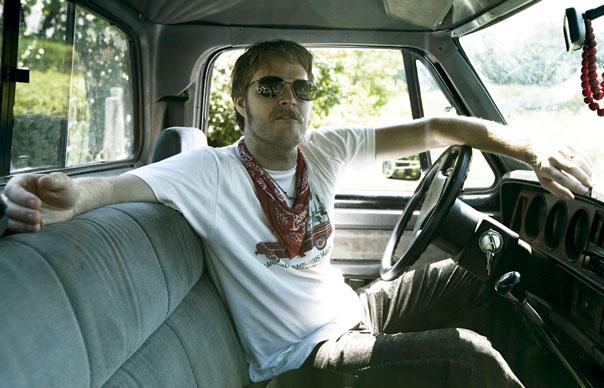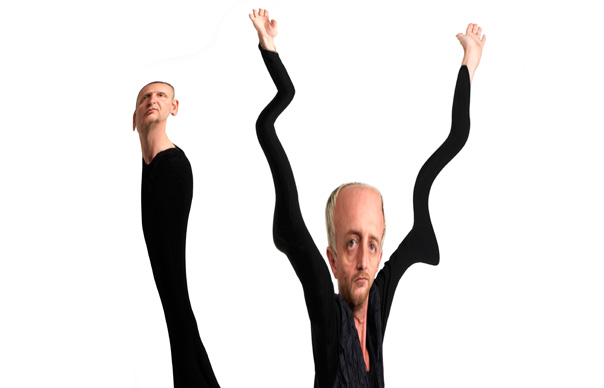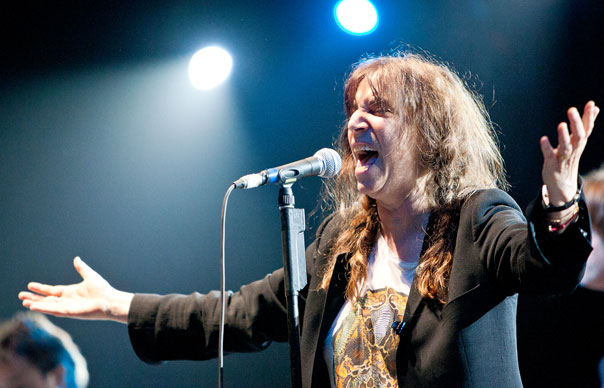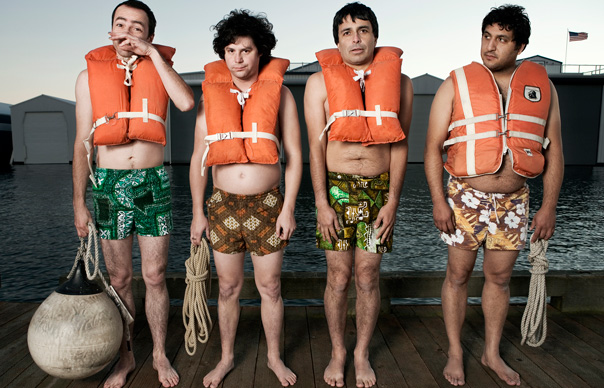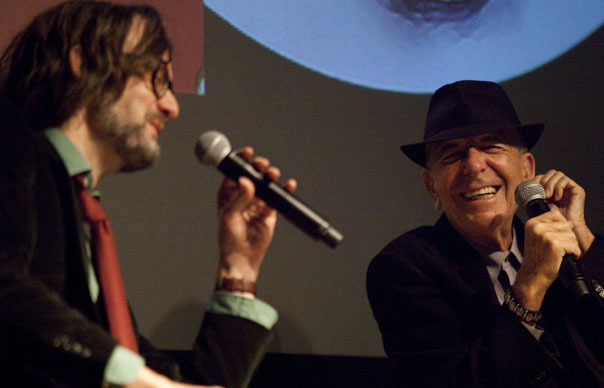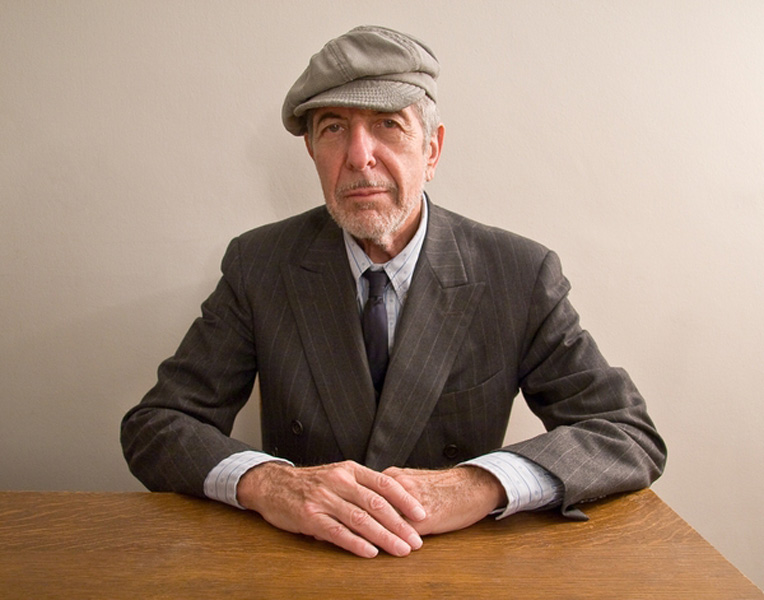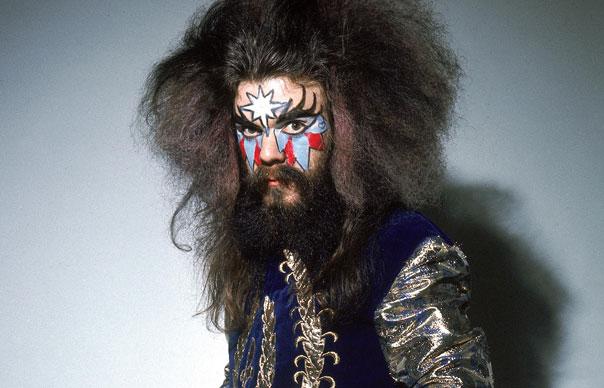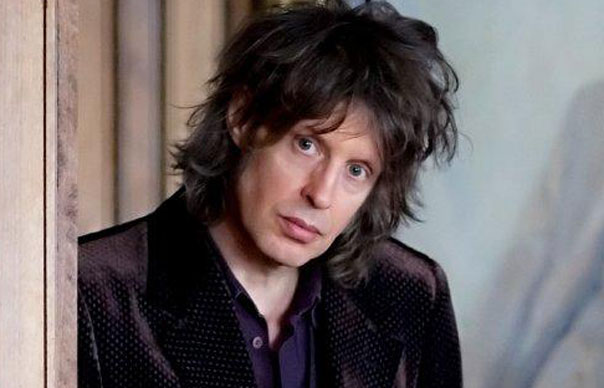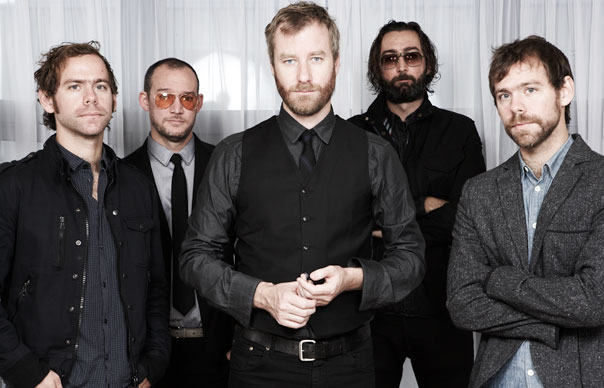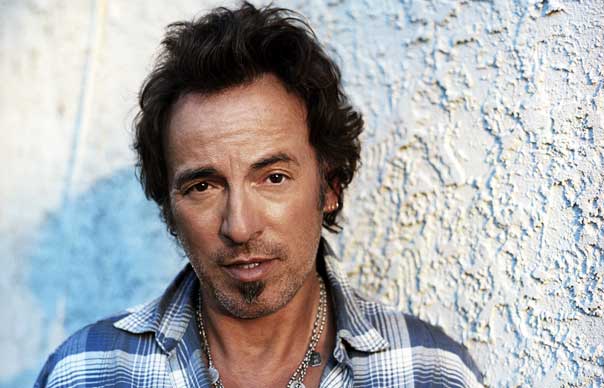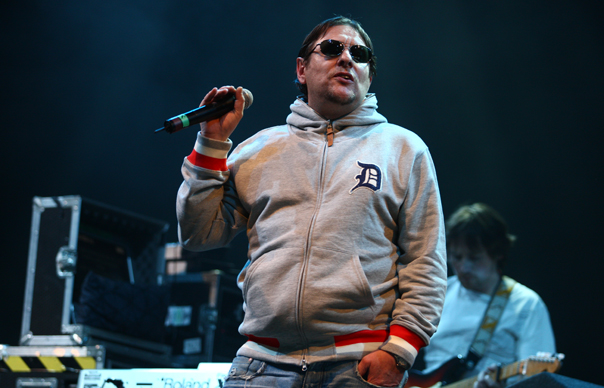The clock was ticking yesterday afternoon as we approached the final deadlines for the next issue of Uncut. But we were finished early enough for me to rush hot-foot across London to The May Fair hotel, near Hyde Park, where Leonard Cohen was due to present a playback of his new album, Old Ideas, to a specially invited audience.
I didn’t know the hotel by name, but recognised it as soon as the cab pulled up outside. Many years ago, Neil Young had kept me waiting for an unseemly number of hours while he attended to some urgent business or other, our allocated interview time dwindling with every passing minute, not much of it left at all when I was finally summoned into his suite with an imperial indifference to how long I’d been cooling my heels and staring at the walls, quietly fuming.
There was no such slack time-keeping last night, things starting as promptly as promised with the appearance of Jarvis Cocker, here to first introduce Cohen and then, following the album’s playback, interview him. Cocker fair bounded into the room, carrying a large tub of popcorn and a carrier bag, and looking with his beard and corduroy jacket and slacks like a lecturer at a provincial art school in about 1972 or someone about to present an Open University programme on town planning and traffic flow systems. He stood on a little podium, facing the audience, and was quickly joined by Cohen. At 78, the great songwriter appeared uncommonly dapper in an elegant suit and rakish trilby.
“Thanks, friends, so much for coming,” he said, as we’d done him a favour by turning up. “I don’t want to take up to much of your time,” he went on, eager to get on with things. It turned out he would sit among the audience for the playback of his album, rather than retiring to some cloistered room. “I will not be facing you during the playback,” he added reassuringly. “So you need not guard your expressions.”
The album was duly played, accompanied by a series of slides, presumably part of the record’s artwork, projected on a large screen. Typically sonorous opener “Going Home”, for instance, plays against a backdrop of a self-portrait dated Sunday 7.30am, October 14, 2007. There’s a scrawled note beneath the drawing that reads: ‘Speak truth to power? Rather speak truth to the powerless.’
“How is to listen to your own records?” Cocker asked him after the album had been played.
“I wasn’t listening,” Cohen told him, smiling.
“You did a good impression,” Cocker said, which prompted Cohen to admit that he had in fact been paying attention to the record, but only to confirm to himself that he had “ratcheted up to the right degree of excellence. But mostly I was wondering if I myself could be swept along with it. This particular record invites one to be swept along with it even if you happen to have written it yourself.”
Cocker made some vague comments about the way in which Cohen had always framed his voice with arrangements that supported its limitations, which he thought had been clever on Cohen’s part.
“I never had a strategy,” Cohen explained. “I always felt I was kind of scraping the bottle of the barrel trying to get the songs together. I never had the sense that I was standing in front of a buffet table with a multitude of choices. I felt I was operating in what Yeats called ‘the foul rag and bone shop of the heart’.”
Cocker mentioned the deepening with age of Cohen’s voice, which often on Old Ideas sounds like it’s reaching us from the bottom of time.
“You work with what you have,” Cohen shrugged, which got a laugh. “It’s what happens when you stop smoking, contrary to public opinion. I thought my voice would rise to a soprano.” He later mentioned he was looking forward to taking up smoking again when he was 80, and touring if for no better reason than it would give him an opportunity to “smoke on the road”.
Cocker noted that the new album shared its title with the name of Cohen’s song publishing company.
“”I don’t have that many ideas,” Cohen deadpanned. “If I have a good one, I call everything after it.”
Cocker pressed him to explain how he wrote, where his inspiration for songs came from. Cohen was unforthcoming, almost superstitiously guarded.
“It’s my work and I try to do it every day,” he said. “By some grace something invites you to work on it and illuminate it, but you can’t own the source of inspiration. I think we should move on,” he added a little uncomfortably, “or we’ll end up in a state of paralysis. It’s tough enough as it is.”
Cocker wasn’t to be put off and a little later returned to the same question. This time Cohen was a little more adamant.
“We really do have to be careful analysing these scared mechanics,” he said, “because somebody will throw a monkey wrench into the thing and you’ll never write another line.”
Cocker was more specific. He referred to “Going Home” and a line that mentioned ‘the penitential hymn’, which Cocker thought somehow summed up much about Cohen’s work.
“I’m not sure what that means,” Cohen said, provoking more laughs. “is the penitence appropriate to God or to man? Who’s to blame in this catastrophe? I never figured that out.”
A song called “Banjo” opened with a startling image of the instrument afloat on an ocean. Had Cohen actually seen such a thing?
“I don’t know if I saw it,” he replied. “I certainly imagined it.”
Cohen was shortly to receive the PEN New England Award for literary excellence in song lyrics. He was excited that Chuck Berry would be a co-recipient.
“’Roll over Beethoven and tell Tchaikovsky the news.’ I’d like to write a line like that.”
He talked elsewhere about how unexpected the response to his last tour had been, how the affection and acclaim that had come his way had invigorated him.
“I’m not insensitive to that kind of appreciation. And when the tour finished, I didn’t feel like stopping. So I wrote this record. Before the tour, I hadn’t done anything for 15 years. I was like Ronald Reagan in his declining years. He remembered he’d had a good role in a movie, as president. I felt somewhat that I had been a singer. Being back on the road re-established me as a worker in the world. That was a very satisfactory feeling.
There was a question from the audience about his thoughts on destiny and fate.
“I can trot out ideas to be cordial or convivial,” he said. “But I really have no deep convictions, no worthwhile ideas.”
Someone pointed out that it had been eight years since his last album, Dear Heather. Between albums, did he continue to write?
“I’m always writing,” he said. “There’s never a sense of hiatus. I wrote a lot of songs on tour that I still have to record. In this workshop, it never shuts down.”
Jarvis asked him about a song on the new album called “Darkness” and how it connected to 1992’s “Anthem”, in which he wrote: “There’s a crack in everything, that’s how the light gets in.”
“You got me stumped there,” Cohen said, and laughed again.
Several people were now trying to get his attention, hoping he’d elaborate, which he finally did.
“It’s just the song that allows the light to come in,” he said. “It’s the position of the man standing up in the face of something that is irrevocable and unyielding and singing about it. It’s the position the Greek, Zorba, had. When things get really bad, you just raise your glass and stamp your feet and do a little jig. That’s about all you can do.”


